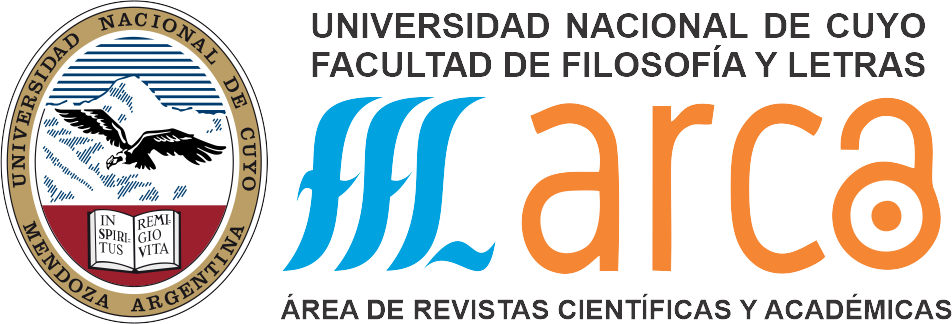The Hungarian reception of the Latin American boom: some contributions
Keywords:
Hungarian reception, Gabriel García Márquez, Julio Cortázar, Mario Vargas Llosa, Carlos FuentesAbstract
This article examines the Hungarian reception of the literary works of four authors of the Latin American boom from the 1960s to the present day. After giving a summary about the situation of publishing books in Hungary in the Communist era until 1990 and then during the democratic period, the work presents the Hungarian editions of the narrative by Gabriel García Márquez, Julio Cortázar, Mario Vargas Llosa and Carlos Fuentes. It details/discusses the presence of these four authors in the pages of Nagyvilág , one of the most prestigious literary magazines of the above-mentioned period, and compares the reviews, and interviews related to them. The article includes a bibliography of the works of the four authors that have been translated into Hungarian.References
Bánki, Tímea (ed.). Historia de Hungría. Madrid: Ministerio de Educación y Cultura, Editio
Mediterranica, 2007: 217-223.
Bart, István. Világirodalom és könyvkiadás a Kádár korszakban [Literatura mundial y la
edición de libros en la era de Kádár]. Budapest: Scholastica, 2000.
Benczik, Vilmos. "Egy perui íróról" [Sobre un escritor peruano]. Nagyvilág, n. 2, 1973: 279-
András, László. "Személyes közügy" [Asunto público personal]. Nagyvilág, n. 5, 1969: 784-
András, László. "A város és a kutyák" [La ciudad y los perros]. Nagyvilág, n. 4, 1965: 601-
Benyhe, János. "A fuentesi regényrészlet elé" [Introducción la novela de Fuentes].
Nagyvilág, n. 7, 1966: 963.
Benyhe, János. "Ki ölte meg Palomino Molerót?" [¿Quién mató a Palomino Molero?].
Nagyvilág, n. 10, 1986: 1567-1568.
Bikfalvy, Péter. "Vargas Llosa, a beszélÅ‘ és az elbeszélÅ‘" [Vargas Llosa, el hablador y el
narrador]. Nagyvilág, n. 12, 1994: 1018-1026.
Bikfalvy, Péter. "Vargas Llosa, a (magán)mítoszteremtÅ‘ és (ön)parodista" [Vargas Llosa, el
(auto)creador de mitos y el (auto)parodista]. Nagyvilág, n. 3-6, 1997: 327-335.
Csikós, Zsuzsanna. "Las obras narrativas de Gabriel García Márquez, Julio Cortázar, Mario
Vargas Llosa y Carlos Fuentes publicadas en húngaro". En Línea:
http://revistas.uncu.edu.ar/ojs3/index.php/cilha/libraryFiles/downloadPublic/34 Consultado: 5/4/2018.
Archivo complementario.
Csuday, Csaba. "A fanatizmus: végveszély" [El fanatismo: peligro de muerte]. Nagyvilág, n.
, 1983: 482.
Csuday, Csaba. "Utóhang Mario Vargas Llosa regényrészletéhez" [Epílogo al fragmento de la
novela de Mario Vargas Llosa]. Nagyvilág, n. 1, 1988: 16.
Csuday, Csaba. "Vargas Llosa Nobel díja" [El premio Nobel de Mario Vargas Llosa].
Nagyvilág, n. 12, 2010: 1183-1186.
Dés, Mihály. "A siker kétarcúsága" [La doble cara del éxito]. Nagyvilág, n. 1, 1979: 152-153.
FenyÅ‘, István. "A zsarnokság művészi természetrajza. Gabriel García Márquez: A pátriarka
alkonya" [La naturaleza artística de la tiranía. Gabriel García Márquez: El otoño del
patriarca]. Nagyvilág, n. 3, 1980: 450-451.
Haraszti, Zsuzsa: "Lélekrajz és realizmus" [Psicología y realismo]. Nagyvilág, n. 4, 1974:
-631.
García Márquez, Gabriel. "Politikussá lettem". Manuel Osorio beszélgetése az íróval (trad.
Ferenc Pál) [Poco café y mucha política. Entrevista de Manuel Osorio con el escritor].
Nagyvilág, n. 11, 1978: 1694-1697.
García Márquez, Gabriel. Utazás Kelet Európában [De viaje por Europa del Este]. Budapest:
MagvetÅ‘ Kiadó, 2017.
Kulin, Katalin. Mítosz és valóság. Gabriel García Márquez. Budapest: Akadémiai Kiadó, 1977.
Pál, Ferenc. "García Márquez magányos tábornoka" [El general solitario de García Márquez].
Nagyvilág. n. 2, 1991: 180.
Pál, Ferenc. "Az ünneprontó író. Carlos Fuentes regényrészlete elé" [El aguafiestas.
Introducción al fragmento de la novela de Carlos Fuentes]. Nagyvilág, n. 4, 1991: 501-502.
Pósa, Zoltán. "Nem csak mágikus realizmus. Scholz László megírta a spanyol-amerikai
irodalom történetét" (No solo realismo mágico. László Scholz escribió la historia de la
literatura hispanoamericana). Magyar Nemzet, 5 de julio de 2005. Extraído el 20 de enero de
desde: https://mno.hu/grund/nem-csak-magikus-realizmus-550562
Scholz, László. "Emberközelben" [Cercanía a la gente]. Nagyvilág, n. 6, 1975: 941-942.
Scholz, László. "Limai beszélgetés Mario Vargas Llosával" [Conversación con Mario Vargas
Llosa en Lima]. Nagyvilág, n. 9, 1977: 1380-1383.
Scholz, László. "Julio Cortázar 1914-1984" [Julio Cortázar 1914-1984]. Nagyvilág, n. 7, 1984:
-1079.
Scholz, László. "Budapesti beszélgetés Mario Vargas Llosával" [Conversación con Mario
Vargas Llosa en Budapest]. Nagyvilág, n. 5-6, 1998: 431-441.
Scholz, László. "A másik" [El otro]. Nagyvilág, n. 7-8, 1998: 475-477.
Scholz, László. A spanyol-amerikai irodalom rövid története [Breve historia de la literatura
hispanoamericana]. Budapest: Gondolat, 2005.
Scholz, László. "Squandered opportunities. On the uniformity of literary translations in
postwar Hungary". In: Brian, James Bear Brian (ed.). Contexts, Subtexts, and Pretexts:
Literary and translation in Eastern Europe and Russia Amsterdam and Philadelphia: John
Benjamins, 2011: 205-218.
Székács, Vera. "A zöld házak világa" [El mundo de las casas verdes]. Nagyvilág, n. 9, 1970:
-1410.
SzÅ‘nyi, Ferenc. "Carlos Fuentes és a Terra Nostra" [Carlos Fuentes y la Terra Nostra].
Nagyvilág, n. 7, 1988: 966.
Vargas Llosa, Mario. "El sobreviviente". Extraído el 20 de enero de 2018 desde:
http://colegioamerica.edu.uy/MATERIAL/LITERATURA/VargaLLosa/Mario%20Vargas%20Llos
a%20-%20El%20Sobreviviente%20(1998).html
Zelei, Dávid. "Carlos Fuentes (1928-2012)" [Carlos Fuentes (1928-2012)]. Nagyvilág, n. 8,
: 699-705.





















